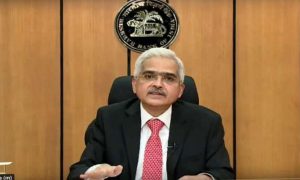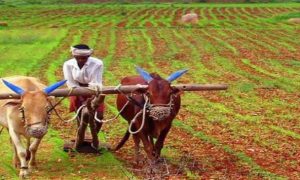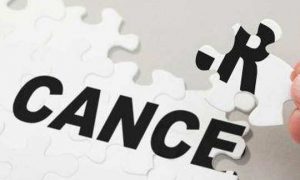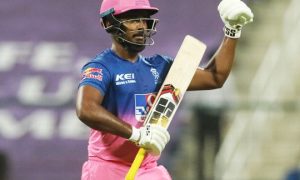The chief executive officer of the National Health Authority also said that the states, under Ayushman Bharat, have been given a free hand in including beneficiaries if they are unable to locate the original ones from the SECC 2011 list
The Narendra Modi government is planning to use CoWIN — the tech backbone of India’s Covid vaccination drive — for booking polio, hepatitis, and other routine vaccines for children under the country’s universal immunisation programme.
In an exclusive interview with News18.com, Dr RS Sharma, chief executive officer of the National Health Authority, said that the work to repurpose CoWIN has already begun and it’s “a matter of just a few months” when the tech platform will finally be rolled out for booking slots of routine vaccines.
Sharma – who is known for his stints dealing with information technology-related programmes, the most important being the creation of Aadhaar as the director general and mission director of the Unique Identification Authority of India (UIDAI) – is also credited for making CoWIN.
“The platform is now being repurposed for the universal immunisation programme. While CoWIN will retain its own features, it will be highly beneficial for the country to track the coverage of the immunisation programme,” he said.
CoWIN will continue to send reminders, as it does in the case of Covid vaccines, to parents. “For instance: if your child’s polio vaccine is pending or upcoming, the system will send reminder messages to parents,” Sharma said. “The platform will help in monitoring the coverage of the national immunisation programme and recapture the entire data. It will also highlight the drop-outs, if any, and send reminders which will help in tracking and improving the coverage of immunisation programme further.”
The basic functioning of CoWIN remains the same, he said.
“The platform will show all hospitals providing vaccination shots in your vicinity. One needs to book an appointment by submitting the mobile number,” added Sharma.
The users will also be able to download the digital vaccination certificate after the completion of the immunisation schedule.
‘MANY COUNTRIES TOOK INSPIRATION FROM COWIN’
CoWIN, which is claimed to be the fastest-growing tech platform across the world, has recorded the administration of 25 million vaccine doses in a day, one of the highest, which resulted in billions of hits on the website.
According to Sharma, India has shared the platform with Guyana so far and talks are going on with several other nations on the use of technology.
“We are educating several countries on how to use this technology as per their country’s requirements,” he said. “They first need to understand the technology and then go for it. As Prime Minister Modi has rightly said that we should use CoWIN as a public good, we have offered the technology to everyone. Countries have used the basic philosophy of the platform as its an open source and have taken inspiration from it to create the products for their own populations.”
‘STATES CAN ADD AB-PMJAY BENEFICIARIES’
On asking if the beneficiary base of PM Narendra Modi’s flagship scheme Ayushman Bharat-Pradhan Mantri Jan Arogya Yojana (AB-PMJAY) will be expanded further, Sharma said, “This is for the central government to decide what will be the beneficiary base of the scheme. Till now, Socio Economic and Caste Census 2011 is used as the base.”
The scheme provides an annual health cover of Rs 5 lakh per family to more than 10 crore poor and vulnerable people (around 50 crore beneficiaries) for secondary and tertiary care hospitalisation.
“States have done additions to the beneficiary base. Some states were not able to locate SECC-based beneficiaries and have added their own beneficiary lists. Uttar Pradesh, for instance, has added the Antyodaya scheme,” Sharma said. “We have told the states that it’s not a problem until the total number of families in the beneficiary base as per SECC data does not exceed the total number of families in their list.”
For instance, UP has got 1.18 crore SECC families but they have located just 50 lakh SECC family members. “We told them to include any other beneficiaries either from the Antyodaya scheme or other families so that we will start funding them under the scheme,” Sharma said. “We have changed the strategy. If we were not able to locate them in the past three to four years, we may not be able to locate them now. Therefore, we have no problem if the states give us their own lists of families.”
‘DIGITAL HEALTH MISSION TRANSFORMATIONAL, NEEDS TIME TO GROW’
Under the scheme, building blocks and other components are ready such as health facility registry, drug registry, and consent manager engine.
“We have already demonstrated the format of video consultation,” Sharma said, adding that “the Universal Health Interface (UHI) that we have created is something similar to UPI. It’s like a pipe where on one side, we have all seekers such as people requiring ambulances, hospitals, and drugs, and on the other side, the provider of all those services such as labs, doctors, and pharmacies. UHI is a very powerful search platform similar to Google.”
He explained that “with the use of UPI, today, wallet to bank, bank to bank, bank to wallet and all such kinds of digital transactions are possible… Because of UPI, payment has become an unbundled service…”
Similarly, with UHI compliance, “the search, booking and fulfilment of health services are possible”.
Blood banks, organ donation, ambulances, and a variety of services can be brought on this platform. The service provider, if complying with UHI protocol, will be able to harness this network and connect.
“It’s a very transformational project which requires the collaboration of all ecosystem stakeholders,” said Sharma.
However, the project will take time to kickstart as it primarily requires the production of digitisation of healthcare and digital health records.
“If you continued using cash, would UPI have grown? Not at all. Here also, all ecosystem partners have to collaborate, first,” Sharma said. “We cannot nudge people to use digital platforms for seeking health services. Until we start producing digital health records, this will not begin in a full-fledged manner. I can create a house and create rules for the house but cannot provide people to live in the house… I’m hopeful that people will realise as it’s a win-win for everyone… and soon they will get attracted…A few companies such as Paytm and Eka Care are helping patients in the creation of health records but the process is time-consuming and we need more people to participate in digital health.”
Ayushman Bharat Digital Mission (ABDM), in the long term, aims to achieve an affordable, quality-based healthcare system, which can be accessed by anyone and everyone across India, he said.
So far, India has created more than 23 crore health IDs.



































